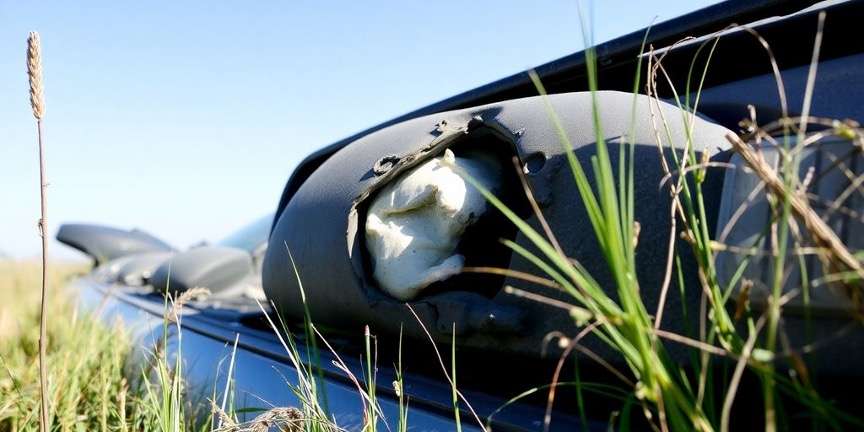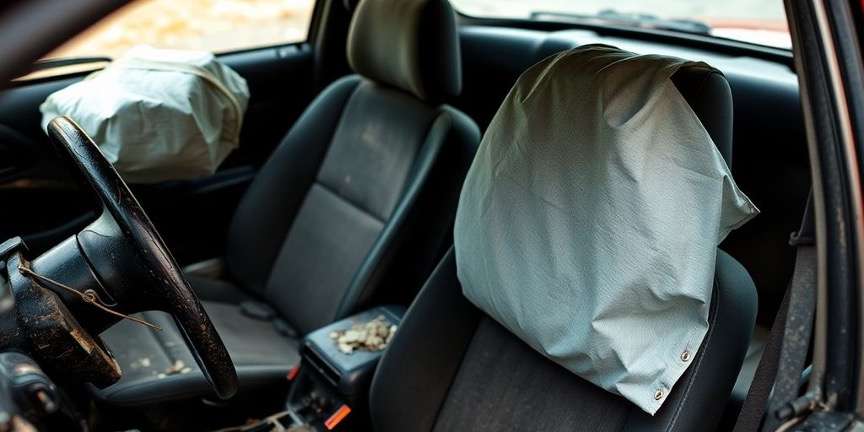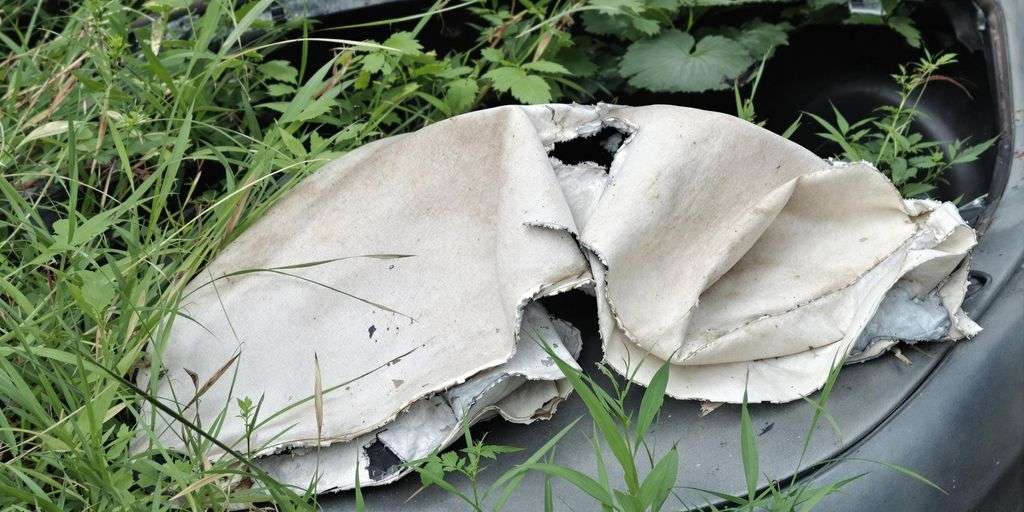Key Takeaways
- Understanding the legal requirements is crucial when selling a car with a defective airbag.
- Always disclose known defects to potential buyers to avoid future liabilities.
- Check if the airbag issue is part of a recall and what steps to take if it is.
- Consider different selling options like auto recyclers or online platforms.
- Aim for a transparent transaction to build trust with the buyer.
Understanding the Legal Implications of Selling a Junk Car

Legal Requirements for Selling a Junk Car
Selling a junk car isn't as simple as just handing over the keys. You've got to know the legal requirements in your area. Different states have different rules, but generally, you'll need to have the title of the car. Without it, selling your car can become a real headache. Some places might let you sell a car without a title, but that's more the exception than the rule. It's always smart to check with your local DMV or a legal expert to be sure you're on the right track.
Disclosure Obligations to Buyers
When you're selling a junk car, honesty is the best policy. You must disclose any major defects, like a faulty airbag system, to potential buyers. This isn't just a moral thing—it's the law. If you hide issues, you could end up in legal hot water later. Think about it: would you want to buy a car with hidden problems? Probably not. So, make sure you lay everything out on the table.
Potential Liabilities for Sellers
Selling a junk car doesn't mean you're off the hook once the sale is done. If you don't disclose known issues, you could be liable if something goes wrong down the road. Imagine selling a car and then finding out it's been involved in an accident where airbags deployed because of a defect you didn't mention. You might find yourself facing a lawsuit. To avoid this, be upfront about the car's condition and keep records of what you've told the buyer. This way, you protect yourself from future headaches.
It's better to be upfront about your car's issues than to face potential legal troubles later. Transparency not only builds trust but also ensures a smoother transaction.
Assessing the Condition of Your Junk Car

Identifying Defective Airbag Systems
Before you think about selling your junk car, especially if the airbag system is faulty, you need to know what you're dealing with. Airbags are critical for safety, and a defective system can be a deal-breaker for many buyers. Check if your car's airbags have been recalled by looking up the vehicle identification number (VIN) on official recall websites. If there's a recall, you might be eligible for a free repair, which could increase your car's value.
Evaluating Other Safety Concerns
Besides airbags, other safety issues can affect your car's sellability. Look for problems like faulty brakes, worn-out tires, or malfunctioning seatbelts. Make a list of these concerns. You might decide to fix some of them if it makes financial sense. Remember, a car with multiple safety issues is less attractive to buyers, even if it's just for parts.
Determining the Car's Overall Value
When it comes to selling a junk car, understanding its worth is essential. The value of a junk car depends on several factors like its make, model, year, and current condition. Even the price of scrap metal can play a big role. Also, think about the car's location and what parts, if any, can be salvaged. Sometimes, a car might be worth more in parts than as a whole. Take all these factors into account to set a fair price.
Navigating the Recall Process for Defective Airbags
Checking Recall Status and Notifications
First off, if you suspect your car's airbag might be part of a recall, you gotta check the recall status. This isn't as hard as it sounds. Most car manufacturers have online tools where you can plug in your vehicle identification number (VIN) to see if your car is affected. It's critical to stay informed because driving around with a faulty airbag is risky. Once you're in the know, keep an eye out for any notifications from the manufacturer. They usually send out notices via mail or email, detailing what to do next.
Steps to Take if Your Car is Recalled
So, your car's on the recall list—what now? Here's a simple guide to follow:
- Read the Recall Notice:Review the recall notice to get a handle on the defect and any potential risks.
- Contact Your Dealer: Reach out to your local dealership. They'll guide you on the next steps, which often include scheduling a repair.
- Arrange for Repairs: Most recalls offer free repairs, so make sure you set up an appointment to get your airbags fixed pronto.
Impact of Recalls on Car Sales
Got a car with a recalled airbag and thinking of selling it? This can complicate things a bit. Buyers might be hesitant, and the car's value could take a hit. However, once the airbag is replaced, you can usually sell it without issue. Some folks even find that getting the recall addressed can boost their car's resale value a bit. Just ensure you have all the paperwork showing the recall was resolved before listing your car for sale.
Recalls might seem like a hassle, but they're all about keeping you safe. Make sure you handle any recall notices promptly to avoid any potential dangers on the road.
Exploring Selling Options for Junk Cars
Selling to Auto Recyclers
When you're looking to offload a junk car, auto recyclers are often the first stop. These businesses specialize in buying cars that are no longer roadworthy, often breaking them down for parts or scrap metal. Selling to recyclers can be a straightforward process. They'll typically offer you a price based on the weight and the materials of the vehicle. While you might not get top dollar, it's a quick and hassle-free way to get rid of your old car.
Private Sales vs. Dealerships
Deciding between a private sale and a dealership can be tricky. Private sales might fetch you a better price since you're dealing directly with the buyer, but they also come with more work. You’ll need to advertise, meet potential buyers, and negotiate the sale. Dealerships, on the other hand, offer convenience. They handle most of the paperwork and can often give you a same-day offer. However, they might not offer as much as a private buyer would.
Online Platforms for Selling Junk Cars
The internet has opened up a world of possibilities for selling junk cars. There are numerous platforms where you can list your vehicle, from general marketplaces to specialized car-buying websites. These platforms can give you access to a wider audience, potentially increasing your chances of a sale. When you're looking to sell junk cars for cash, online platforms can provide instant quotes and connect you with interested buyers quickly. Just make sure to read the terms and conditions carefully and be aware of any fees associated with the sale.
Selling a junk car doesn't have to be a daunting task. With the right approach and understanding of your options, you can turn that old vehicle into cash with minimal fuss.
Maximizing the Value of Your Junk Car Sale
Repairing vs. Selling As-Is
When it comes to selling a junk car, deciding whether to fix it up or sell it as-is can be a tough call. Repairing certain issues might boost the car's value, but it's essential to weigh the repair costs against the potential increase in sale price. For instance, fixing a minor engine problem could make the car more appealing, but if the cost is too high, selling as-is might be the smarter choice. Consider getting a quote from a mechanic to understand the financial impact.
Negotiating with Buyers
Negotiating can feel like a game of chess. Start by setting a realistic price based on the car's condition, and be ready to justify it with facts. Highlight any unique features or recent repairs to strengthen your position. Be open to offers, but don't be afraid to stand firm if the price seems too low. Remember, the goal is to find a balance that satisfies both parties.
Understanding Market Trends
Keeping an eye on market trends can really give you an edge. If you notice that certain car models are in demand, it might be worth holding onto your vehicle for a bit longer. Conversely, if the market is flooded with similar cars, acting quickly could prevent further depreciation. Regularly checking local listings and consulting with experts can help you make informed decisions.
Selling a junk car isn't just about getting rid of an old vehicle; it's about making the most out of what you have. By understanding your car's condition and the market, you can maximize its value and achieve a satisfying sale.
For more insights on how to maximize your junk car's value with expert tips, consider exploring options like responsible recycling and securing the best price through local services.
Ensuring a Safe and Transparent Transaction
Providing Full Disclosure to Buyers
When selling a junk car, honesty isn't just the best policy—it's the law. Transparency with potential buyers about the car's condition, including any defects like a faulty airbag system, is crucial. Buyers need to know what they're getting into, and this openness can prevent future disputes or legal issues. Make sure you have all the necessary documentation ready, especially if the car has been part of a recall.
Documenting the Sale Properly
Proper documentation is your best friend in a car sale. You'll want to make sure everything is written down—every agreement, every disclosure, signed and dated. This means having a bill of sale that outlines the vehicle's condition and any known defects. A simple checklist can help:
- Vehicle Identification Number (VIN)
- Description of the vehicle's condition
- List of known issues
- Signatures of both parties
Avoiding Common Pitfalls in Junk Car Sales
Selling a junk car can be tricky, and there are a few common traps you want to avoid. First, never misrepresent the car's condition. Even if it's tempting to gloss over defects, this can come back to bite you. Second, don't skip on the paperwork. Missing documents can lead to complications down the line. Lastly, be wary of scams, especially if you're selling online. Stick to secure payment methods and verify the buyer's information before finalizing the sale.
Selling a junk car might seem straightforward, but it requires careful attention to detail. From ensuring full disclosure to maintaining proper documentation, each step is important to protect yourself and ensure a smooth transaction.
Understanding the Role of Auto Recyclers in the Recall Process
How Recyclers Handle Recalled Parts
Auto recyclers play a crucial role when it comes to managing recalled parts. They often own a large inventory of vehicles, including those with recalled components. When a recall is issued, recyclers need to identify and remove defective parts from their stock. Efficient inventory management systems are essential for tracking these parts and preventing them from being resold. However, sometimes recyclers aren't notified about recalls, which can lead to defective parts being inadvertently sold.
The Importance of Inventory Management
Proper inventory management is key in the recall process. Auto recyclers must keep detailed records of the parts they handle, especially those subject to recalls. This involves tracking VIN data and part numbers to ensure that defective parts are identified and removed. By doing so, recyclers help prevent faulty components from re-entering the market, thereby enhancing vehicle safety.
Collaboration with Regulatory Bodies
Auto recyclers often work closely with regulatory bodies like the NHTSA to ensure that recalls are addressed effectively. They provide data on the vehicles and parts they process, which helps track recall completion rates. This collaboration is vital to achieving a higher recall completion rate and ensuring that defective parts are safely removed from circulation. In this context, the importance of a comprehensive recruitment process is highlighted, ensuring a skilled workforce is available to manage these complex tasks efficiently.
Conclusion
So, can you sell a junk car with a busted airbag system? Yeah, you can, but it's not as simple as just handing over the keys. You gotta be upfront about the airbag issue. It's not just about being honest; it's about keeping everyone safe. Plus, knowing the rules can save you from a lot of headaches down the road. Whether you're selling to a junkyard or a private buyer, make sure they know what they're getting into. And if you're buying, do your homework. Nobody wants to end up with a car that's more trouble than it's worth. In the end, it's all about being smart and staying informed.
Frequently Asked Questions
Can I sell a junk car if it has a bad airbag?
Yes, you can sell a junk car with a defective airbag, but you must tell the buyer about the problem.
What does it mean to sell a car ‘as-is'?
Selling a car ‘as-is' means you sell it in its current condition without making any repairs or changes.
How do I find out if my car has a recall?
You can check for recalls by visiting the National Highway Traffic Safety Administration website and entering your car's VIN.
What are the risks of selling a car with a defective airbag?
The risks include potential legal issues if you don't tell the buyer about the defect.
Who buys junk cars?
Junk cars can be sold to auto recyclers, private buyers, or through online platforms.
How can I get the most money for my junk car?
To get the most money, compare offers from different buyers and consider removing valuable parts before selling.



